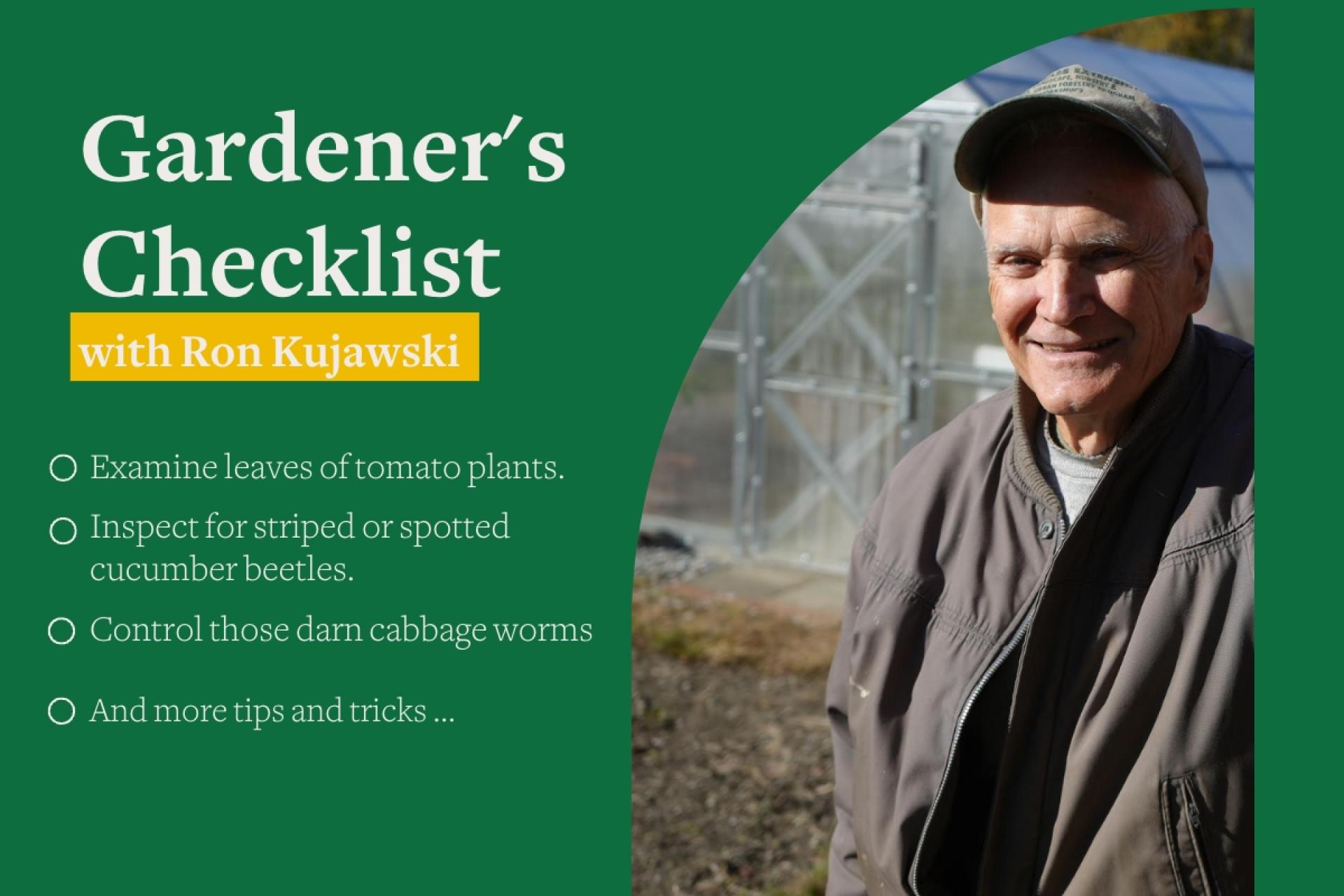You are here
Gardeners Checklist: Here Is What to Do on the Week of July 3
Gardeners Checklist: Here Is What to Do on the Week of July 3
By Ron Kujawski
• Examine leaves of tomato plants for spots or blotches. If these spots begin on lower leaves and advance upward, it is likely the plants are infected by Septoria leaf spot or early blight. Picking off infected leaves may slow disease development but will not stop it. Early application of a fungicide containing copper will provide good control. Read the label of the product for specific instructions regarding application.
• Inspect cucumber, melon, and squash plants for striped or spotted cucumber beetles. Cucumber beetles carry a bacterium that they transmit to the plants when feeding. The bacterium causes a serious wilt disease. Plants already wilting despite moist soils are probably infected and should be pulled up and buried. An organic insecticide such as neem oil or pyrethrum will provide moderate control of cucumber beetle.
• Apply a biological insecticide containing Bacillus thuringiensis (Bt) or one containing spinosad to control cabbage worms on broccoli, cabbage, and kale.
• Make one more sowing of sweet corn, bush beans, summer squash, and carrots if garden space allows.
• Dig up and divide bearded iris, a task that should be done about every three years. Any decayed parts of the rhizomes (thickened underground stems) should be cut away and destroyed. It’s likely that they are infested by iris borers.
• Water potted geraniums (Pelargonium) and those in flower beds only when soil becomes dry. Do not over-water geraniums as their roots rot easily in wet soil. Also avoid wetting the leaves when watering; water the soil not the plant.
• Be sure that foliage houseplants which have been moved outdoors for the summer are in a shaded location. It could be dappled or partial shade but avoid direct sunlight during late morning and afternoon hours when it is most intense.
* * *
Whoa! Who turned on the heat? When it gets this hot, gardeners need to take some precautions. For one, drink water frequently to prevent dehydration. Wear sunscreen and a wide brimmed hat to prevent sunburn. Rest frequently to prevent heat stress or stroke. Consider doing gardening tasks in early morning or evening hours if your schedule allows. This advice may seem obvious and common sense, but as Horace Greeley once said, “Common sense is very uncommon.” Common sense tells me that I should take a nap in a hammock under a shade tree rather than tend the garden today…zzzzzzzzzzzzz.
Ron Kujawski began gardening at an early age on his family's onion farm in upstate New York. Although now retired, he spent most of his career teaching at the UMass Extension Service. He serves on Berkshire Botanical Garden’s Horticulture Advisory Committee. His book, Week-by-Week Vegetable Gardener’s Handbook, is available here.
Help Our Garden Grow!
Your donation helps us to educate and inspire visitors of all ages on the art and science of gardening and the preservation of our environment.
All donations are 100 percent tax deductible.



